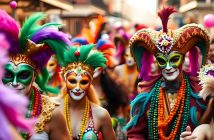In the second part of our sojourn into the Languedoc, Lucy Shaw heads deep into wine territory, where the land is as charismatic as the men who work it…
The first thing you notice on arrival in the Languedoc is the cicadas, which trill day and night in the trees in a frenzied cacophony of screeching that can be both soothing or infuriating depending on your mood. An immediate holiday signifier, by the time you leave you’re so acclimatised to the steady sound that it almost becomes part of you. Stretching from the Rhône valley in the east, to the Spanish border in the southwest, the Languedoc nestles in France’s southern tip. Its name is an amalgamation of “Langue d’Oc” (the language of Oc), a Roman dialect spoken in southern France in Medieval times in which “oc” was the word for yes.
Having worked in wine for eight years, until now I’d yet to sink my teeth into the Languedoc, a region so popular with the wine trade, a number of its key scribes, including master of wine Jancis Robinson, have holiday homes here. While more rugged and rough around the edges than the pristine Côte d’Azur, with its glittering coastline and manicured beaches, the Languedoc is equally charming in its own way. The largely flat terrain is dotted with rocky scrubland known as “garrigue”, abundant with rosemary and lavender, which fill the air with their potent perfume. The region is also home to swathes of almond, pine and cherry trees, though it’s best known for its olive trees, whose silvery leaves shine like metal in the moonlight. The Greeks began trading in the area as far back as 600BC, bringing with them traditions of grape growing and olive oil production.
My visit in early July centred around the former, though involved lashings of the later. I’d been invited by charismatic French winemaker Jean-Claude Mas to stay at the recently opened guesthouse at his flagship Côté Mas estate, one of 10 owned by Jean-Claude falling under the Domaines Paul Mas umbrella. Cocooned in vineyards, the guesthouse, crafted from sand-coloured stone and prettified with mint green shutters and a terracotta tiled roof, is about as quintessentially French as it gets, down to the gingham tablecloths laid out at breakfast alongside piping-hot, freshly made pain au chocolat.
With nut-brown skin and a mop of errant curls in varying states of disarray, Jean-Claude has something of a young Antonio Banderas about him and exudes the kind of laid-back charm that comes from deep inner confidence. Keen to grab life by the horns and live deeply, while he turns over €47 million a year from his vine ventures, winemaking is just one of his many passions, which include classic cars, Cuban cigars, motorbikes, horse riding, food, philosophy and jazz. Devoid of the pretension surrounding a large chunk of French winemakers, Jean-Claude is on a mission for wine to be viewed as an emotional experience rather than a commodity. “Wine takes you to the most beautiful parts of the world and connects you to writers, artists and musicians; we should be selling this aspect of it,” he tells me over Cognac cocktails at sundown on the terrace of his restaurant.
In possession of 550-hectares of vineyards planted with 40 different grape varieties, Mas is deliberately targeting younger consumers with his wines that combine Old World elegance with New World opulence. The reds from his recently acquired Domaine du Silène show serious promise, with their complex red and black fruit aromas, beautiful balance and robust structure that will see them age gracefully for decades. As the sun dips like a sinking fireball turning the horizon lilac, we head inside restaurant Côté Mas, which opened to the public in 2012, to enjoy a 10-course tasting menu with wine pairings from across Jean-Claude’s 10 estates.
Highlights of the bountiful feast included a veal tartare, tuna carpaccio on a bed of foie gras, slivers of silvery smoked mackerel, hunks of pearly poached cod and a tiny goat’s cheese tartlet with a scoop of olive oil ice cream. More disturbing in nature was a bony pigeon leg served with the claw still on that took serious gumption to swallow, reminding me just how rustic things get down south. Sipping to the sounds of Jimi Hendrix and the Buena Vista Social Club, an unctuous Domaine de La Ferrandière Reserve Prestige Blanc, a blend of Viognier, Sauvignon Blanc and Chardonnay, rang my wine bell.
During a digestif by the pool at midnight, talk turns to the nearby village Agde, notorious locally for its nudist beaches, foam parties and liberal way of life – no one does insouciant exhibitionism like the French. Diving into a deliciously luxurious bed with a burnt orange duvet, the next morning, after a leisurely breakfast, I while away a languorous afternoon by the pool shaded with swaying pines. A cooling breeze funnels through the air, tempering the furnace-like heat. In between dips I nip to the fridge for a chilled glass of Paul Mas Rosé de Syrah, which tastes particularly wonderful in this part of the world with its refreshing notes of crushed strawberries and melon. During a strenuous routine of sunbathing, bathing and reading Tender is the Night, I’m tapped on the shoulder by a pair of barbeque tongs. Dressed in an apron, Jean-Claude hands me a plate of sizzling, medium-rare meat, smoked aubergines with Parmesan shavings, and a tomato, black olive, pine nut and caper salad. Devoured poolside, it was one of the most pleasurable meals of the year.
Sitting with Socrates the dog at his feet, Jean-Claude reflects on the fickle nature of fleeting joy. “The alchemy of happiness is unpredictable, but it’s to do with where you are and who you’re with. If I knew the recipe I’d bottle it. Simple things like seeing a beautiful vineyard blossoming make me happy. I’m not interested in the past – I hate looking back. Life is not a museum and nature is never static, so for things to evolve you’ve got to keep moving forward,” he says.
His latest project is Astelia, a high-end Crémant de Limoux sparkler blending Chardonnay, Pinot Noir and Chenin Blanc. The fizz is named after his three young daughters: Astrid, Elisa and Appoline, who I regularly spot gallivanting around the estate. It tastes a treat in the midday heat. During our poolside chat he tells me of his thwarted attempt to buy a small vineyard plot on the island of St. Erasmus close to Venice. “The land owner killed his wife with a wine bottle after finding out she’d had an affair, then he set fire to his farmhouse. The Italian police considered it a crime of passion and he was sentenced to six months in prison,” Mas recalls nonchalantly.
Under a hard bright sun we saddle up and trot through the vineyards on horseback among the lavender-scented garrigue deep into a forest filled with cicadas. Kicking up dust, it feels like we could be living in another century, so unburdened are we by the incessant hum of technology or the clamour of cars. There’s a peace amid the wildness; a memory I’m keen to uncork when back to the bustle of Blighty.




